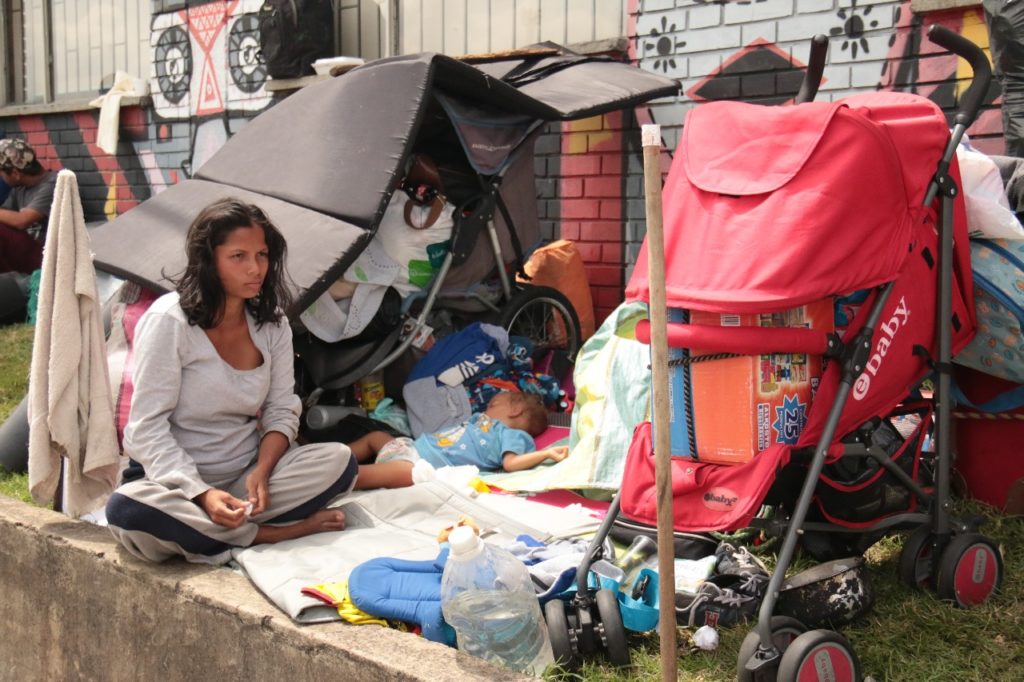Venezuelans in Bogotá
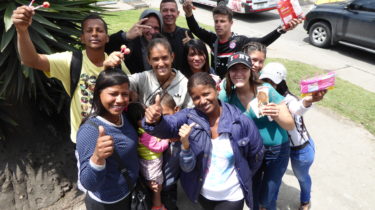
Venezuelans in Bogotá: migrants from the failed state next door are living in dire straits in Colombia’s capital.
POSTED in FEBRUARY 2019
See my related posts
– Venezuelans on the road
– Down and out in Bogotá
See also articles on the Venezuela crisis in The Bogotá Post .
In early 2019 there were an estimated 250,000 Venezuelans living in Bogotá, many fleeing the crisis in their home country. Of course Bogotá is no stranger to new arrivals, the mega-city having grown like topsy to 11 million in recent decades, as the main receptor of families displaced by Colombia’s decades-old conflict.
But the phenomena of Venezuelan migrants is recent, with the trickle becoming a flood in the last year as hundreds arrived daily. Some migrants that arrived early on were lucky and got work permits and, in some cases, jobs, or received social support. But more recent arrivals – often the poorest that left home last – are poverty-stricken and crowd the city’s public spaces trying to survive by begging, selling sweets etc. Their journey from Venezuela, and background to the crisis, was covered in my previous post Venezuelans on the road.
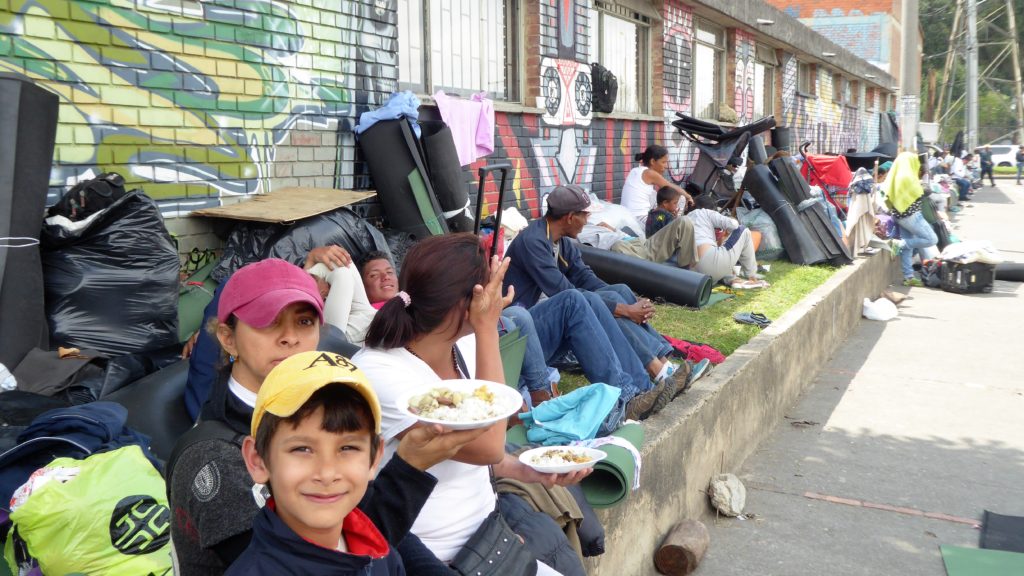
This post is about their lives in Bogotá, based on many articles we did on the Venezuela crisis in The Bogotá Post in 2018 the first three months of 2019.
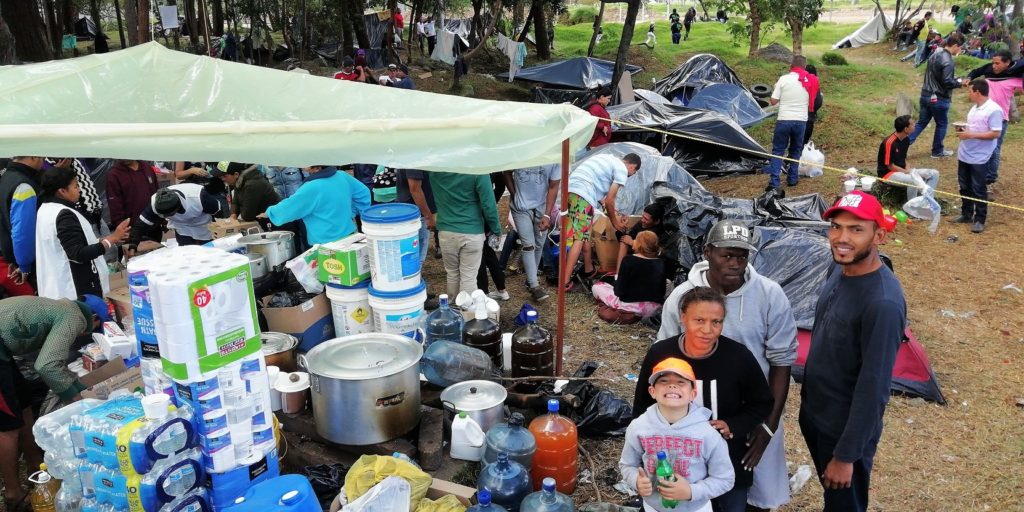
How you can help desperate migrants
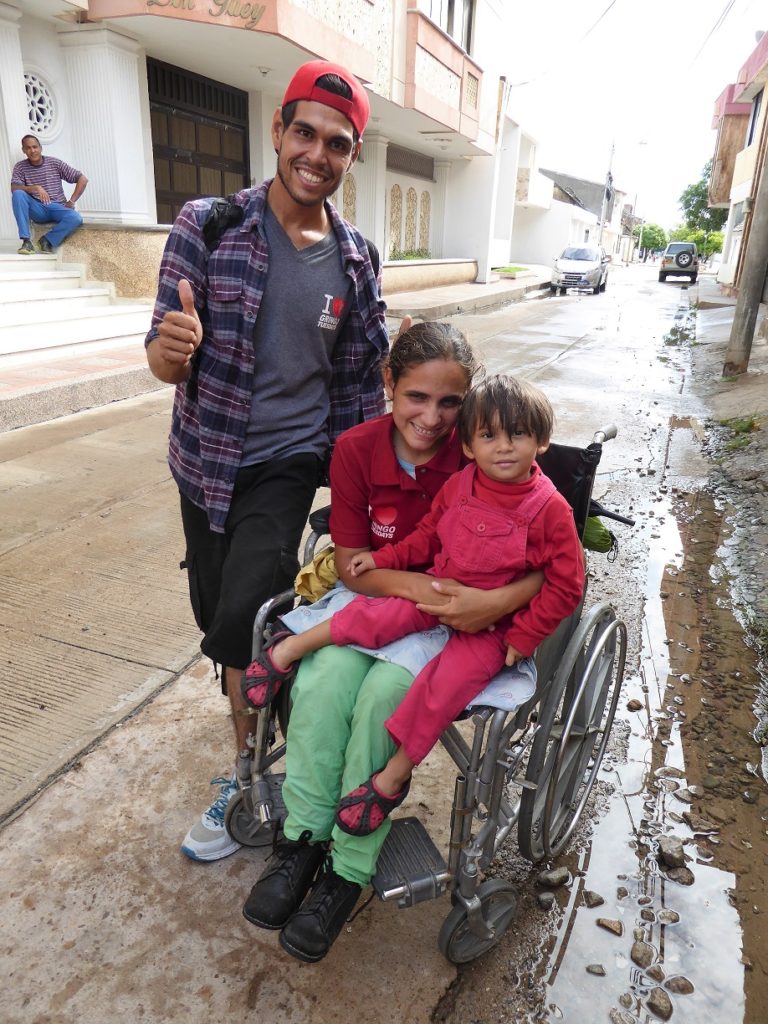
Please share this post. The world needs to know about the suffering in Venezuela, and the plight of the migrants.
While researching the Venezuelan crisis, and contributing to the stories in The Bogotá Post, above, I encountered a migrant family in Riohacha whose story is covered here. In late 2018 I set up a fund here:
GoFundMe page ‘Desperate Family Needs Our Help’.
Any funds are transferred to Colombia then given directly to Geomar through cash transfers.
We have raised money for them, but very sadly Rosangela, the mother of Geomar Junior, died in January 2018, from medical complications. I am still raising money for Geomar Junior and his dad, so please contribute if you can, or share via social media.
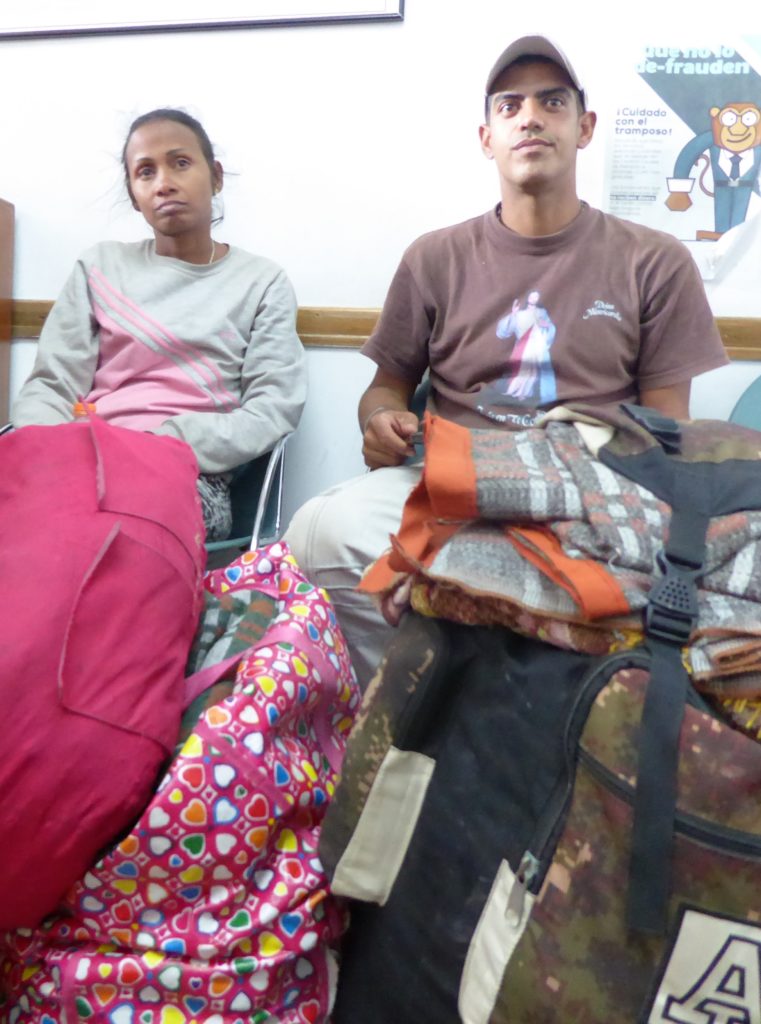
In Bogotá you can practically support migrants (and other needy people) by buying their products at traffic lights or on the public transport system. For a more formal response, the Catholic Church’s is helping both migrants and Colombian displaced through its charity the Fundacion de Atencion al Migrante (FAMIG). This has overnight shelters and food halls (CAMIG) advice centres and hygiene and food kits at the Salitre Bus Terminal (CATTT). These services are often overwhelmed in the current crisis.
The Foundation receives financial donations to, in the following account if you are in Colombia: Banco de Bogota, Cuenta de Ahorros de Fundacion de Atencion al Migrante no. 018309997.
The following items can be donated directly to the CAMIG, Calle 17 # 68-75, Barrio Granjas de Techo, Bogotá:
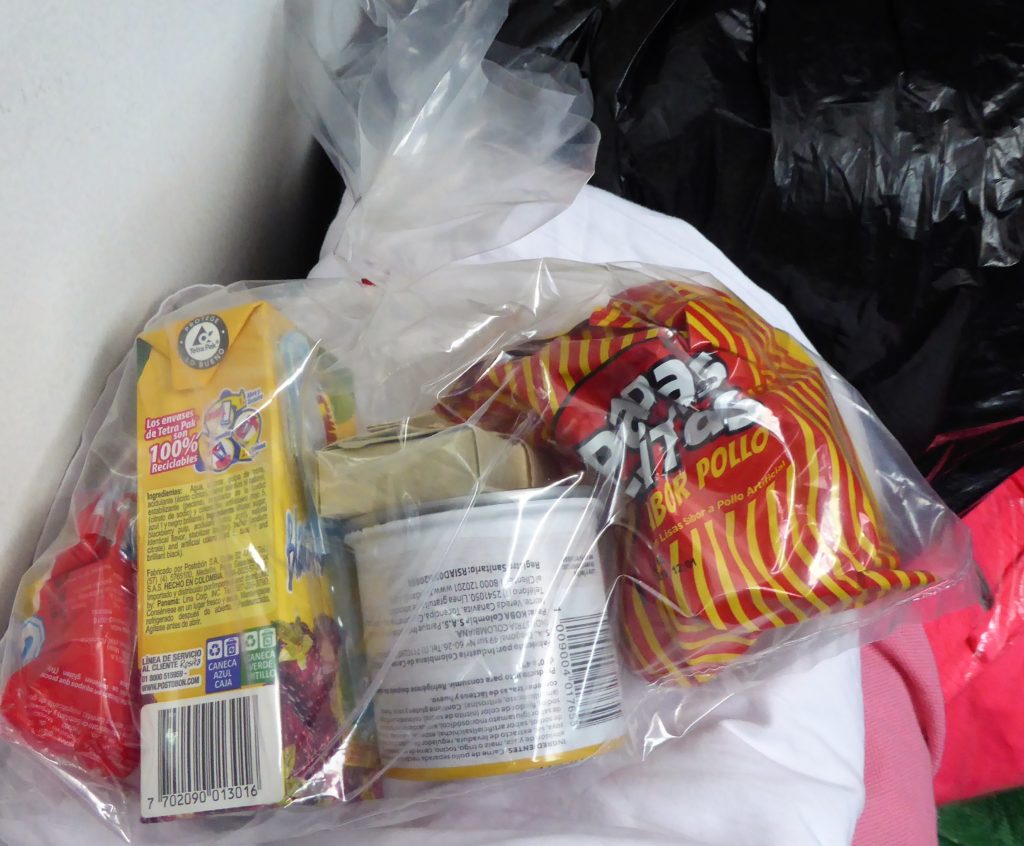
- Second hand clothes, shoes and jackets Items should be clean and in reasonable condition.
- Food: raw food in good condition and tinned or packed food within use-by date
- Hygiene products: soap, shampoo, tooth paste and tooth brushes, toilet paper children’s nappies, sanitary towels, etc.
The following items can be donated directly to the CATTT, Module 5, Local 123, Terminal de Transporte Terrestre Salitre, Tr 66 no. 35-11, Bogotá
- Snack kits: juice carton, biscuits, crisps, sweets (bocadillo) in a plastic bag
- Hygiene products: soap, shampoo, tooth paste and tooth brushes, toilet paper children’s nappies, sanitary towels, etc
The arrival
Many migrants arrive in Bogotá after a hazardous and physically exhausting journey from the Venezuelan border at Cúcuta. Some have walked 600 kilometres over mountains. Like migrant Randy from Nirgua in Venezuela. He walked 10 days from Cúcuta to arrive at the outskirts of Bogotá. Like many migrants, he’s carrying his life on his back, and travelling with mates from home.
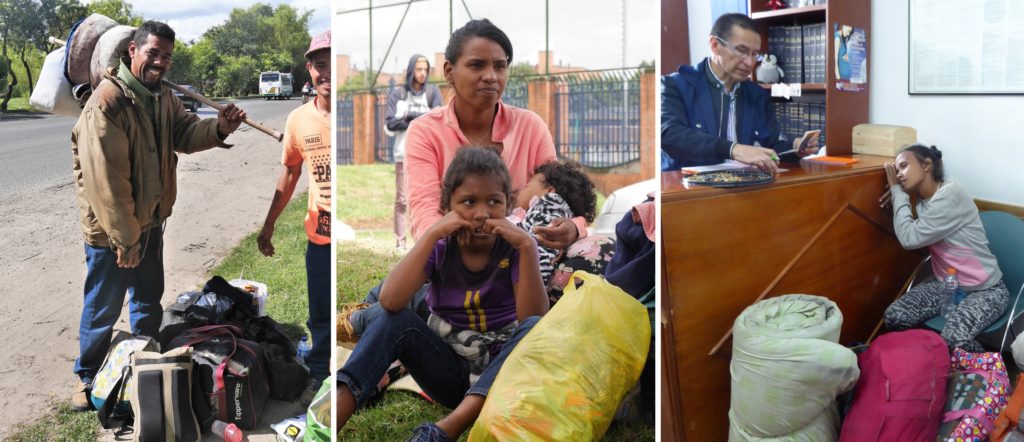
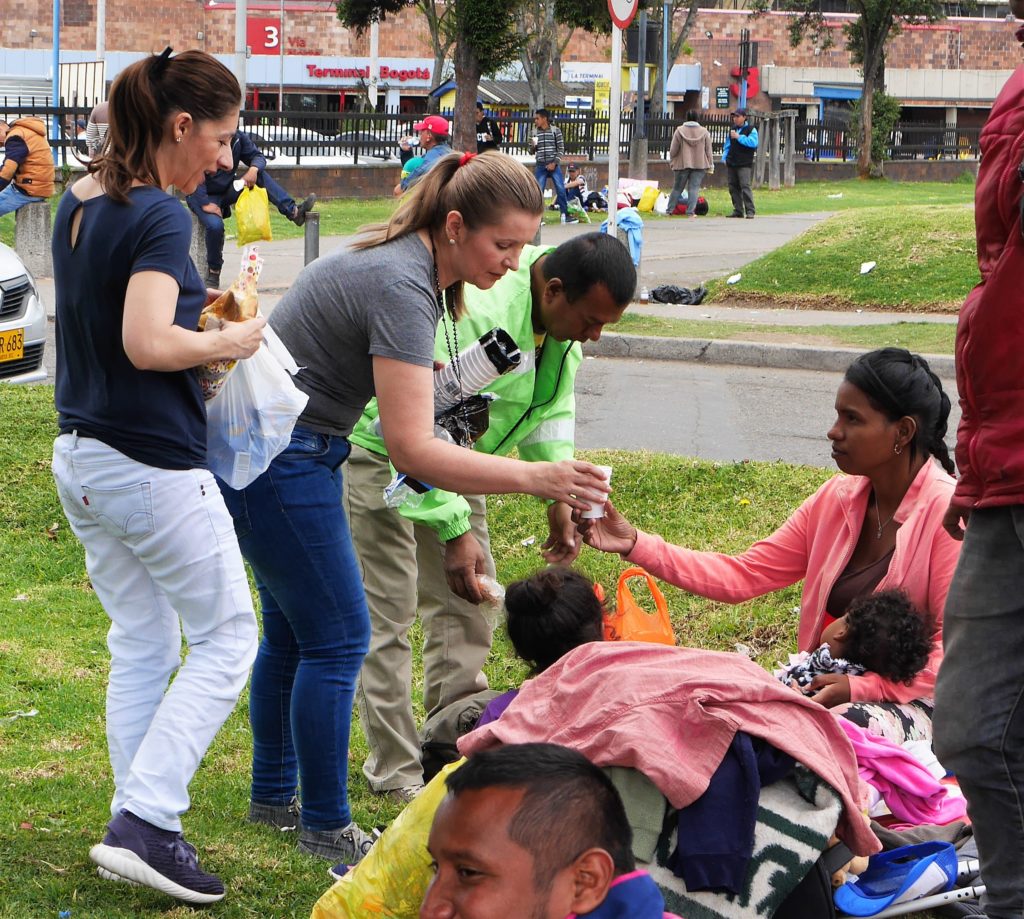
Most migrants have no means of communication – many had to hand over their cellphone to armed gangs crossing the border – so keeping in touch with family and friends is a hard task. For this reason many travel in large groups, or at least trying to meet up in towns on the way. In sprawling Bogotá the Salitre Bus Terminal has become an informal meeting place for migrants, where they can find family and friends, even if they walked into the city. There is also the CATTT office and a help centre run by the City Council and NGOs, and it is close to the church-run CAMIG shelter.
The bus terminal was for many months last year the focus point for Colombians assisting migrants, with hundred of people passing by to donate food, clothes and bedding. Perversely, city authorities took aggressive action against this, isolating migrants from people trying to help them; moving motorists on, and closing an informal camp at Salitre where migrants congregated.
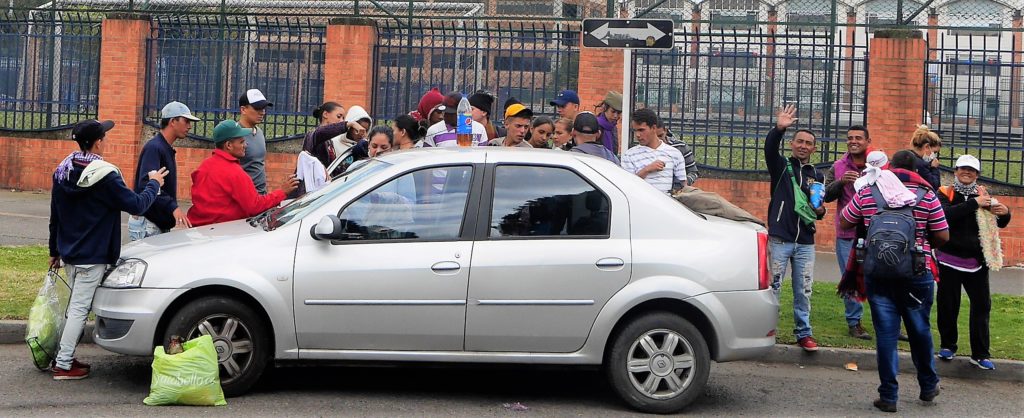
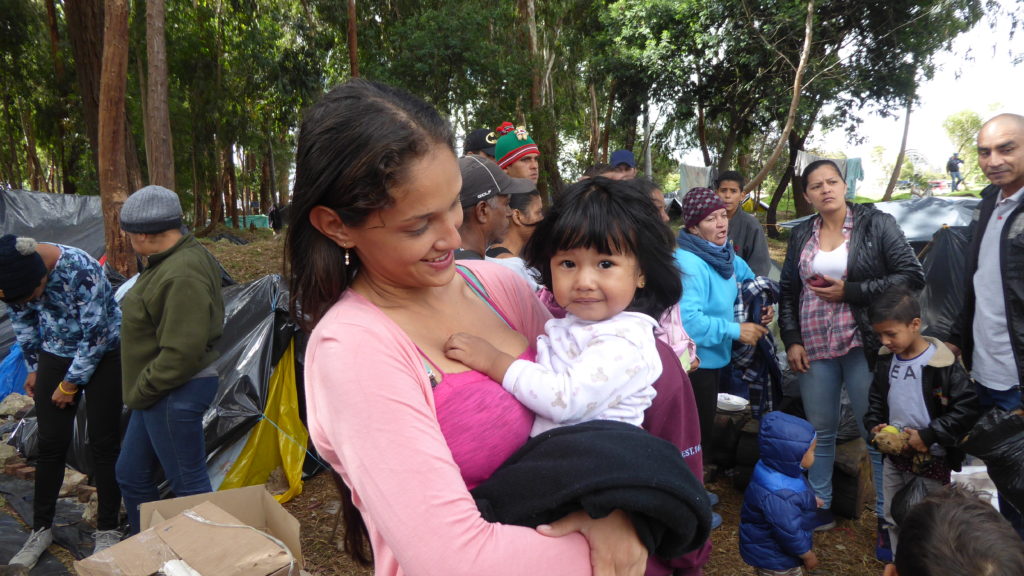
Making a living
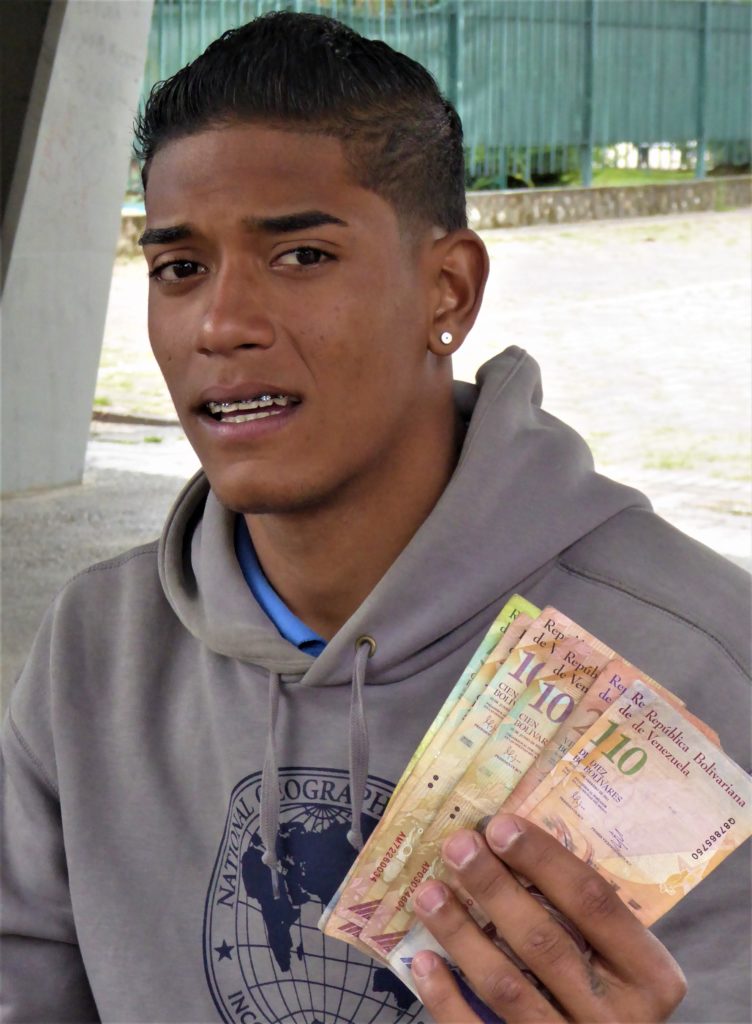
Many migrants get some hand-outs from the church, NGOs and generous people from Bogotá. But everyone we talked to was desperate to find work, some stability, and support themselves. But with high unemployment already in Colombia, and very restrictive hiring practices, it has proved very hard. In the first half of 2018, migrants could sign up for work permits, PEPs, and some did find work. But the current government has restricted the scheme, so migrants are ‘informal’ and cannot legally work. Worse, they can be rounded up and sent back to Venezuela.
To survive in Bogotá many have joined the ranks of the thousands of Colombians already living in the informal sector: street vendors. Or begging at traffic lights. The difference is that many Venezuelans have recently had proper employment, maybe even a house or a car, back in Venezuela. Adapting to living off the streets has been a challenge for many.
Being ‘informal’ has also opened up many migrants to abuse and exploitation. Many have worked for weeks then never received their pay as unscrupulous employers throw them out then claim ‘there is no money to pay’. Others have been forced into sex work. On the plus side, there is amazing solidarity between migrants, who tend to ‘hang out’ in trusted groups. And many Colombians continue to give them money or buy their products.
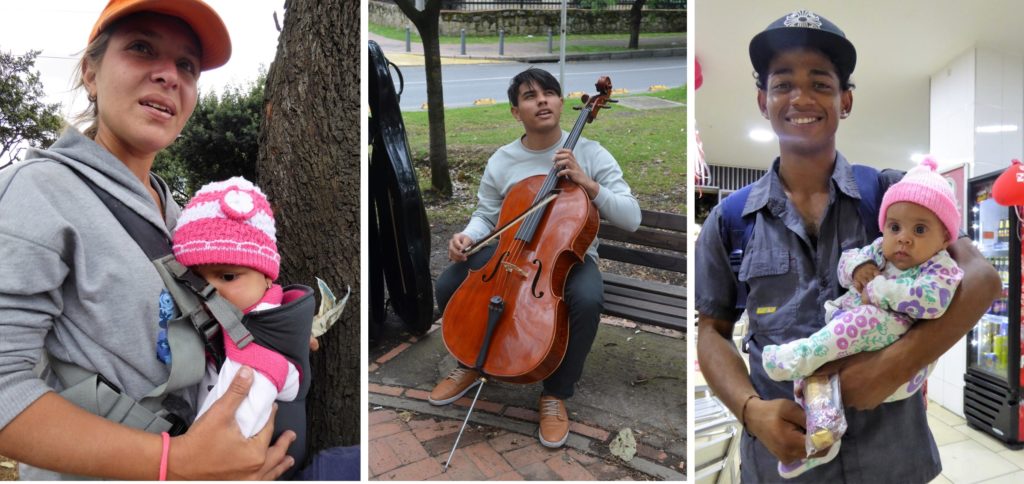
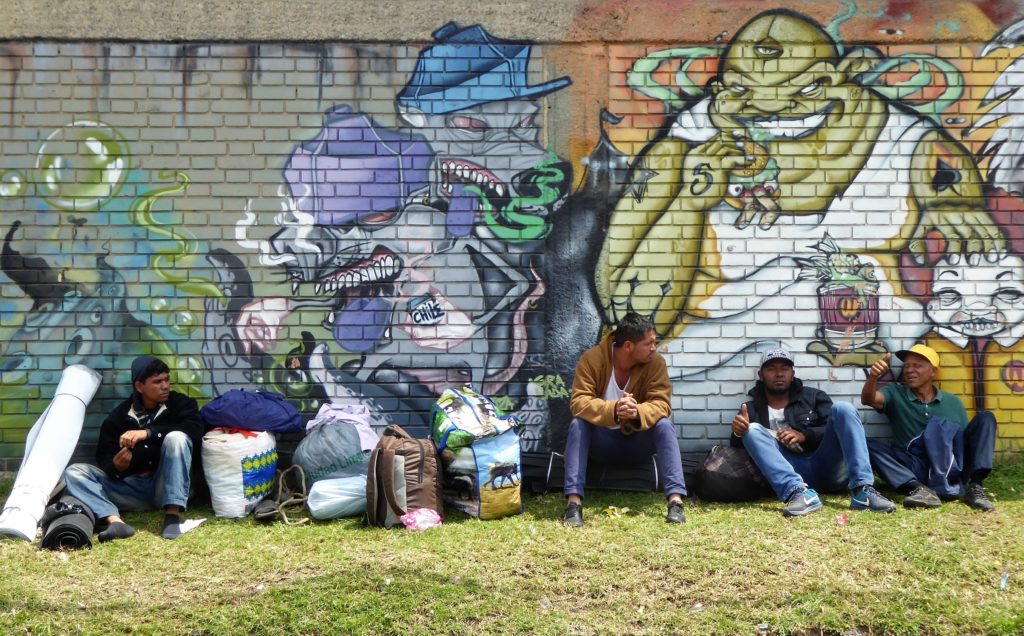
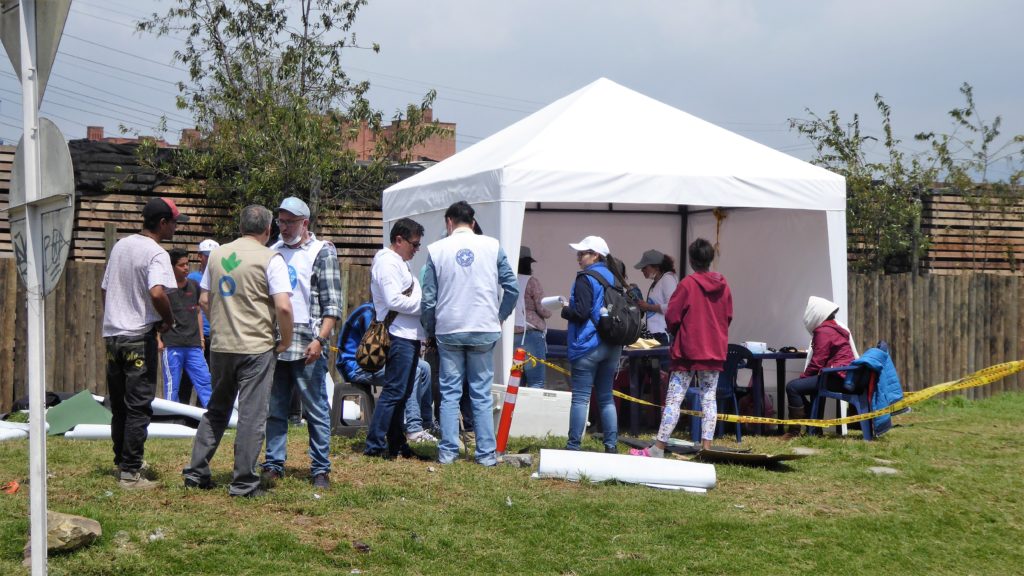
Many migrants are frustrated by the lack of work permits and argue that given the crisis in their home country, the international community should do more to assist Colombia to create opportunities to help them. Lack of protected ‘refugee’ status means migrants are frequently harassed by the police, they tell us.
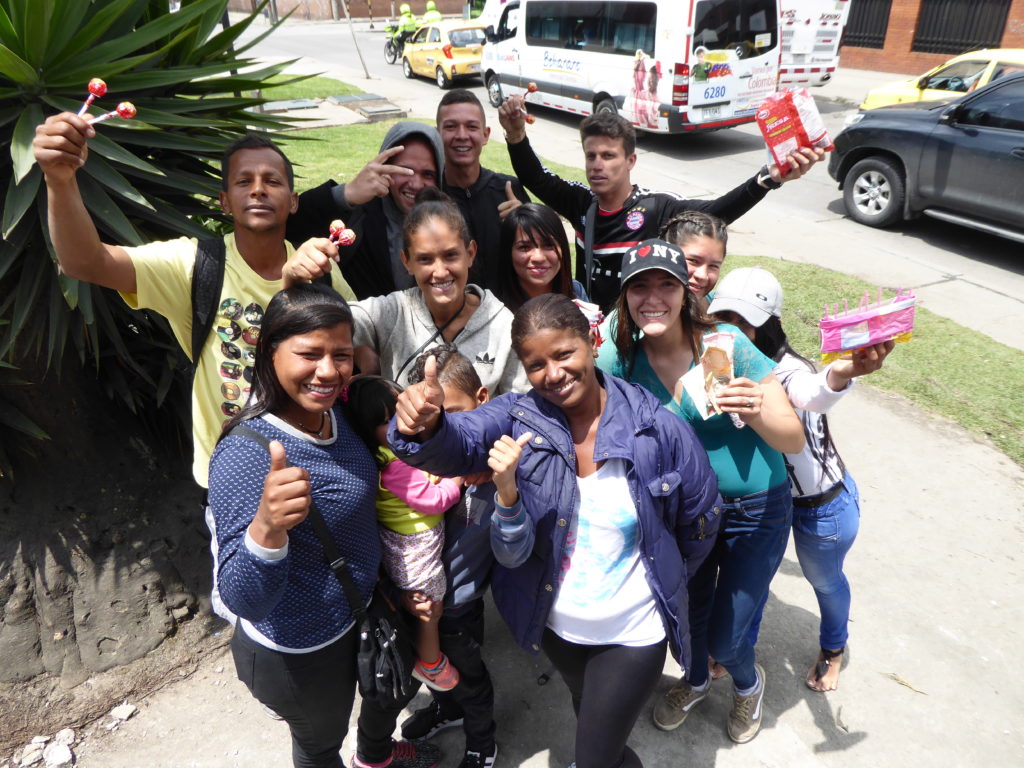
‘We’re treated worse than animals,’ one migrant told me after being constantly chased by police. The former clerk from the Caracas Hilton felt ‘ashamed to be looked at like a criminal’.
‘All we want is work,’ say many, and some have suggested a job-match scheme to link skills to needs in other parts of Colombia – perhaps where there is a skills shortage. Unfortunately Colombia already has many of it sown unemployed. Also many Colombians are nervous to employ Venezuelans after many scare stories in the press, and xenophobic message chains (often fake news) on social media. And government authorities making it hard – almost impossible – to get work permits while fining companies for illegally employing migrants. This is making life very precarious for Venezuelans in Bogotá.
Some commentators see political motives behind all this: not helping migrants too much here will appease the current Duque government’s right-wing backers, and also keep Venezuelans in Venezuela to keep the pressure on Maduro. Others say that helping migrants could highlight the state’s neglect of its own displaced communities.
It’s also true that the Colombian state faces a huge task dealing with the influx and – as with all human-made catastrophes – it is not easy to mount an appropriate response. The international community could also do more.
